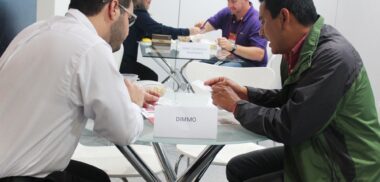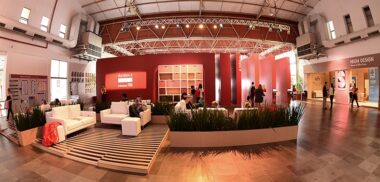Pieces that combine craft and design include a project to revive typically Italian techniques
Through the hands of thirty artisans from Bento Gonçalves and under the keen eye of architects Tina and Lui and designer Renato Imbroisi from Rio de Janeiro, craft techniques gain new meaning, resulting in a delicate collection of decorative objects related to the enogastronomy. Cantina Benta project, an initiative of Sindmóveis in partnership with the Municipal Tourism Department and Emater, is one of the special shows held at Casa Brasil 2013, major high-end furniture and décor fair in Latin America, held from August 13-16 in Bento Gonçalves (RS).
To produce a series of approximately 100 exclusive pieces in embroidery, biscuit, basketry, crochet, macramé and painting, numerous integration workshops with artisans, research and maturation of ideas were developed for over a year. The launch of the collection was on the first day of the fair, attended by all participating artisans, the mayor of Bento Gonçalves, Guilherme Pasin, Tourism Secretary Gilberto Durante and the board of Casa Brasil. Throughout the fair, the products will be sold at the Histórias de Garagem booth, located next to the project.
The journey through the history of Italian immigration begins in the setting of the show, created by architects Tina and Lui. Printed on two-meter panels, the images of the artisans with their creations convey the joyful spirit of the project. The idea is that the initiative is continued, adding value to products that represent the city in its main tourist attractions. “Without the will, the affection, the strength and dedication of the artisans, surely this work would not be possible,” praises Renato Imbroisi, one of the project coordinators.
The organization of projects involving the community in Bento Gonçalves is a tradition at Casa Brasil followed since the first edition of the fair, as a way to integrate the residents in the mood of the event and convey its importance to the local economy. In the 2011 edition, the entrance hall of the fair was decorated with a piece made from plastic bottles designed by the Campana Brothers and manufactured by disadvantaged communities. “Casa Brasil has a commitment to the community that welcomes us. Therefore, in each edition, we try to give something in return to this city embroidered with vines that gives special meaning to Casa Brasil,” says the president of the fair, Cátia Scarton.





